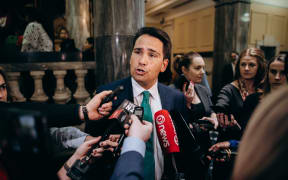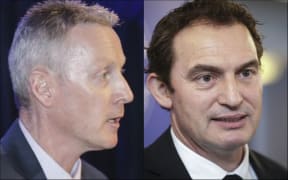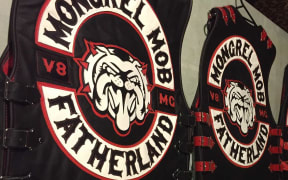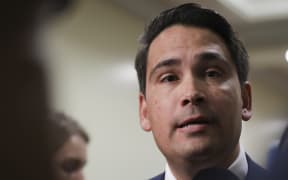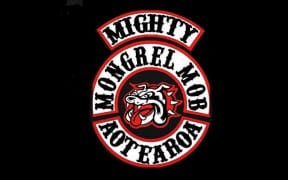A high-ranking Mongrel Mob member has requested a meeting with National leader Simon Bridges to discuss his plans to crack down on gangs.
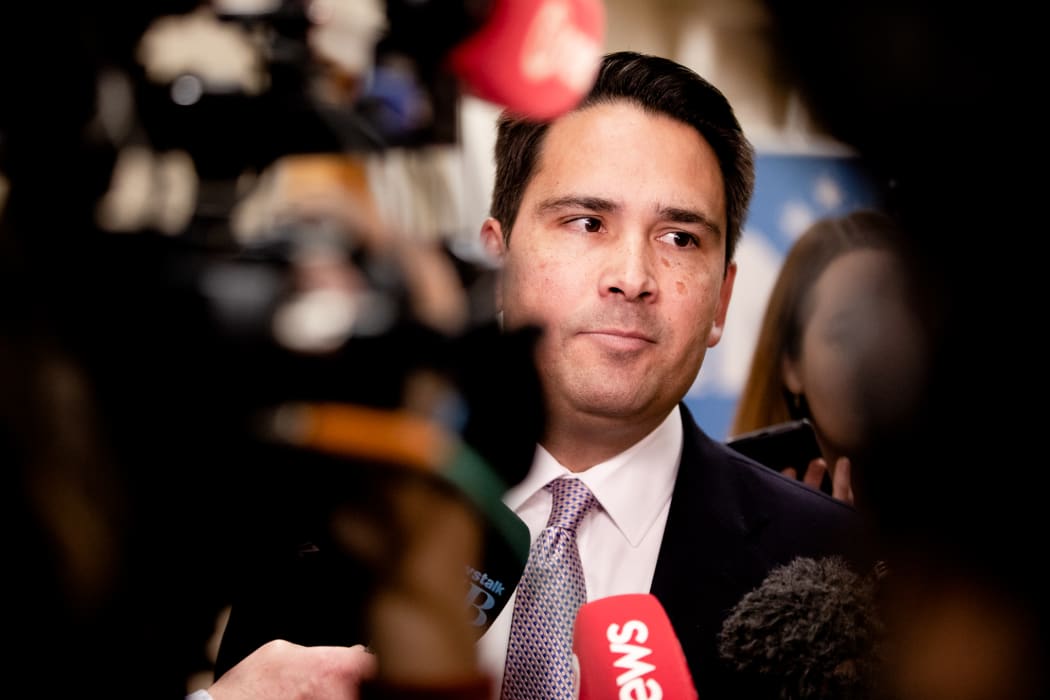
Photo: RNZ / DOM THOMAS
The National Party yesterday revealed its law and order discussion document that proposes a specialist police squad to target and harass gangs, push for tougher parole and sentencing conditions, and introduce a ban on patches and insignia.
At the document's launch, Mr Bridges said if elected his government would harass and disrupt gangs every single day "with the single-minded goal of eliminating them."
Reaction has been mixed, with some victims' advocates are welcoming the proposals, saying they would put victims at the centre of the justice system, but the proposed policies have also raised concerns that vulnerable groups will be further marginalised.
Greg Molony, a member of the Mongrel Mob's Tauranga chapter, told RNZ that if implemented the plan would fail. National's solutions would cause more problems rather than dealing with them, he said.
"People that cause problems for us, generally, it's the same goes back.
"So, having a heavy hand or making statements of harassment and disrupting gang members is probably not a good thing or wise thing to be saying."
Mr Molony, who met with Mr Bridges in his Tauranga electorate this year to talk about his stance on gangs, said gang members were human beings and had the same rights.
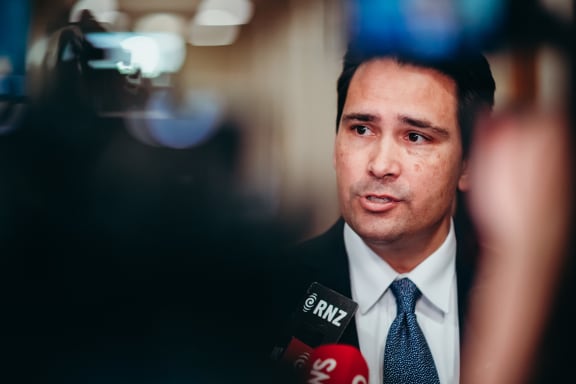
National Party leader Simon Bridges. Photo: RNZ / Dom Thomas
He said the National party leader did not want to "face up" to some of the public comments he has made about gangs in New Zealand.
"We've got questions for him ... and we need answers. We want to know how we're going to be affected"
He is now requesting a second meeting.
"Let's meet, let's talk face to face, and let's get real. I think you're [Mr Bridges] barking up the wrong tree, you're going to actually cause more trouble within New Zealand if he's going to start tackling his idea of the gang issues that he's got in his mind."
Not all gang members were violent or criminals like Mr Bridges suggested, he said.
"We've got gang members who work... 40 hours a week and take their money home to feed their kids and to look after their own whānau - we are human beings."
It was about time, Mr Molony said, that Mr Bridges looked at the good things gangs were doing.
Simon Bridges responds
Responding to criticism of the proposals, Mr Bridges told Morning Report Strike Force Raptor had been "remarkably successful".
He was asked for the evidence that the unit was working.
"We are at this moment, in fact, talking to the government in New South Wales to compile the data. I don't want to give you numbers right now. We will put out some data in the next little while to make clear the case.
He claimed that New Zealand police were "losing the war" against gangs.
"We have a situation where they've got their hooks into middle New Zealand, in Napier and Tauranga and Southland, actually in Auckland where I am right now."
Membership of gangs had gone up 26 percent in the last two years, he said.
He said while gang members being deported from Australia to New Zealand was contributing to that figure, it was a small amount.
"What is also true and what police are telling my colleagues and I, is that whereas in the past becoming a fully initiated patched gang member might have taken two years, now you're talking more like six months. And the reason for that is the desire for dominance, the level of competition amongst gangs and the money they are making."
Mr Bridges also said while being tough on crime was right, a programme of social investment, rehabilitation and reintegration was also important.
He said it was key to ensure people didn't return to prison again and particularly in youth crimes, a second chance was worthwhile.
"My point is both. If you are just tough on crime you lack compassion and proportion. If you take the other view and you don't do any of that you breed more criminals. I want to do both."
If the number of prisoners went up as a result of National's new policies, Mr Bridges said if he had to make a call between more victims or more prisoners, he would take slightly more prisoners.
Asked if he would be prepared to pass legislation in breach of the New Zealand Bill of Rights' freedom of association and freedom of expression to carry out that goal, Mr Bridges said that "ultimately, if the goals and the purposes on the other side of that in terms of reducing crime, seeing fewer gang members peddling P, peddling misery is the result of that - that would be a goal and the purpose worth having".
However, he said "of course" gang members had the same human rights as other New Zealanders.

